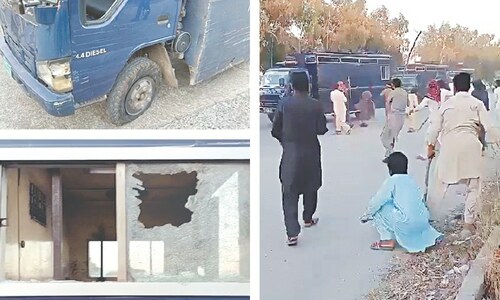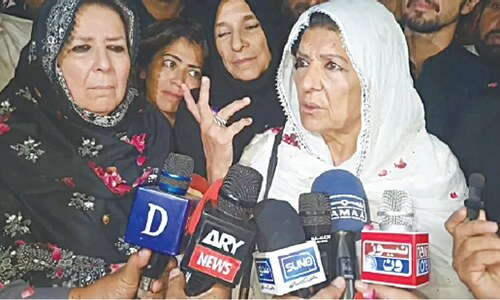WASHINGTON, July 20: “Books are not a reliable source of information when it comes to India-Pakistan relations,” says Keshav Pasari, a Bombay teenager.
Keshav, who never used the new name Mumbai in the conversation, is part of a team of 14 high school students from India spending 21 days with a team of 14 Pakistani students in the US capital. All Indians are from Bombay or Mumbai and all Pakistanis are from Lahore, which has remained Lahore. All the students agreed that the history taught in their schools is not reliable.
“If you need information about each other, take it from whichever source you can but do not trust the books you are taught,” said Keshav. Usman Chaudhry, his new friend from Lahore, agreed. “We should read neutral authors, international experts,” he said.
“Don’t demolish this wall or they will learn not to hate each other,” says a poem recited at a similar India-Pakistan gathering at the University of Wisconsin, Madison.“Brown skins, black eyes, black hair do not separate them, nor do their culture, food or dress; but their fears do, so let this wall remain.”
This group of 28 students decided to leave this wall behind and fly over to a strange land to know each other. And what they found? “I thought Pakistanis were rigid, unreasonable and they hated us,” said Keshav. “Now I know they do not.” He wanted to join the Indian army before he came to this “Seeds of Peace” camp. Now he does not.
“I will have to look for another profession because I do not want to fight Usman.” Saroj Merani, who teaches journalism at a Bombay college, comes from a Sindhi family whose parents were from Karachi and Rohri. Her students did a research project on Dawn, comparing it with Indian newspapers.
“Things are changing,” said Ms Merani who came with the group as a coordinator. “We are learning to know each other. We have to know each other.”
“See, we were together even when the rest of the world was drifting away, when continents were colliding with each other,” said Keshav.
He stopped there. No one in the group suggested that India and Pakistan should undo their borders and merge, as those of older generations often do. Pakistan’s Ambassador Hussain Haqqani, who also addressed the students, noted that it was a little too late to suggest merger. “It is like saying to a 60-year-old man that you had no right to be born because your parents should not have married each other.”
An Indian student got up after the ambassador’s speech and reminded him that three out of five items served at two separate receptions at the Indian and Pakistani embassies were the same: samosa, gulab jamun and chaat.
“Awesome,” said Isbah, a Lahore student, when asked to define her experience. “We need to know each other better.” The programme is organised by a group called Seeds of Peace, formed by a journalist, John Wallach, to promote peace between Arab and Israeli children.
In 2001, India and Pakistan were added to the list. Since then, seven groups have come to the camp from various Indian and Pakistani schools.












































Dear visitor, the comments section is undergoing an overhaul and will return soon.